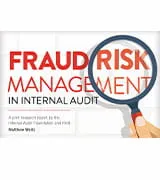
Forensic Audits
Explore Forensic Investigations and Intelligence
A thorough forensic audit, including a holistic review of financial data and non-financial information, is a critical step in identifying and evaluating alleged fraud and corruption. Further, the results of the audit must meet the highest litigation standards for potential use in legal action.
Global corporations, international development agencies and governments turn to Kroll to conduct forensic audits in high-profile and politically sensitive cases. Our teams include forensic accountants, investigators, data analysts and other experts to provide a comprehensive analysis that includes identifying illicit fund flows, scrutinizing procurement contracts and loan agreements, investigating counterparties, and uncovering patterns in complex datasets. Kroll’s global network of business intelligence professionals, industry specialists and subject-matter experts provides our audits with the local political, economic and industry insight needed for clarity in emerging and frontier markets, and other environments in which outsiders are at a disadvantage.
Throughout the forensic audit process, we stay focused on the end goal—gathering evidence that forms the basis of fact-finding reports to meet the highest evidentiary standards. We support these findings with recommendations for further investigations, and enhancements to internal controls and governance structures.
Case Study – Investigating a $5.5 Billion Shortfall in PrivatBank’s Balance Sheet
PrivatBank, the largest bank in Ukraine, was nationalized and recapitalized with state funds after a $5.5 billion shortfall was discovered in its balance sheet. The National Bank of Ukraine, the country’s central bank, turned to Kroll to investigate whether wrongdoing or banking malpractice had taken place.
We deployed an expert team to collect and analyze PrivatBank’s records for the decade leading up to the discovery of the shortfall. The forensic audit work included tracing corporate loan proceeds through a network of connected bank accounts, collating the internal documents to support the transactions, and documenting the internal processes within the bank that supported the growth of the corporate loan book.
The findings supported the follow-up actions of Privatbank and formed the basis of an asset recovery strategy coordinated with external legal teams.
Case Study – Forensic Audit of $2 Billion in Loans Made to Mozambique State-Owned Companies
The Swedish Embassy in Mozambique, at the request of the IMF, commissioned Kroll to conduct an independent forensic audit of $2 billion in loans made by external parties to three Mozambique state-owned companies. The Swedish Embassy made their request after the Office of the Public Prosecutor of the Republic of Mozambique (PGR) began investigating the three companies.
We worked closely with the PGR as well as parties in the UK and the Middle East to obtain information concerning the three companies regarding the loan agreements and supply contracts. We interviewed government ministers, company directors, bank personnel and supplier representatives, and drew upon our network of industry experts working in Mozambique.
We also reviewed the internal controls governing the guarantee of the loans by Mozambique’s Ministry of Finance and its Central Bank. Our conclusions enabled us to confirm the roles of the various parties involved in formulating and implementing the project structure; the resulting questions and evidential gaps that this created in understanding the expenditure of the $2 billion loan proceeds; and recommendations for improvements to internal controls and processes.
Case Study – Forensic Audit in Mongolia
As part of Mongolia’s Extended Fund Facility program with the International Monetary Fund, the Bank of Mongolia (BoM) undertook an asset quality review of the banks under its supervision and identified six banks in need of additional capitalization. After the banks were recapitalized, the BoM retained Kroll to independently verify the source of the funds used to address the capital shortfalls.
Our forensic audit, conducted on the ground in Mongolia, included detailed financial fund flow tracing and analysis of related parties. We identified several transactions requiring clarification and warranting closer review by the BoM.
Case Study – Investigating the Potential Misuse of a Loan to Build and Operate a Shipping Terminal in Central America
Kroll was engaged by a syndicate of lenders, who had financed the construction and ongoing operations of a shipping terminal in Central America. The syndicate was concerned that the funds from the loan had been used to bribe government officials and others. Kroll conducted a detailed review of the financial records of the company, commencing with the initial injection of capital, followed by the draws of the loan. The analysis focused on the source and use of funds from both the capital and the loan. It also focused on how those funds were used in the construction of the terminal, the purchase of equipment, labor and other costs. We reviewed the major construction contracts to confirm that the bidding process was transparent and that the costs were reasonable. We also conducted a site inspection and reviewed independent valuation reports to support the construction costs. We conducted background research on the initial awarding of the terminal concession to a third party before the company acquired the construction and operational rights.
Our investigation identified irregularities in the awarding of the concession but found no evidence that equity or funds provided by the syndicate of lenders were used in the payment of bribes or other irregularities. We also conducted a detailed review of the ongoing operations of the company (revenue and expenses) and recommended steps that the company’s management could take to improve monthly and annual reporting to the syndicate.
Connect With Us









Investigating and Protecting against C-Suite Level Fraud

COVID-19 Vaccine Rollout: Stopping the Spread of Misinformation
Risk Analytics Monitor
Proactively detect fraud and corruption with Kroll’s risk, investigations and data analytics experts, supported by an award-winning software.
Money Laundering Investigations
Helping clients unravel complex money-laundering operations and track illicit fund flows around the world.
Forensic Accounting and Disputes
Forensic accounting and expert services related to fraud, bribery, corruption and financial misconduct.
Financial Investigations
Global, efficient investigations into allegations of fraud, bribery, corruption and money laundering.

